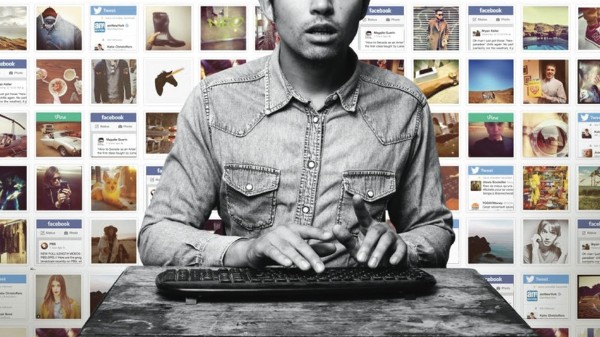Well, to be more specific: Millennials trust user-generated content (UGC) more than they do professionally-written content.
UGC refers to anything created by a non-professional, and for millennials it’s often peer-driven content, such as status updates, Yelp reviews, Facebook posts, tweets, blogs, videos… oh and anything on Reddit’s Front Page.
All of which are, of course, created by individuals without any monetary motivation.
And therein lies the key: Money.
Millennials read your content in full-awareness that it may be biased because it was written for the author’s personal monetary gain.
And this reduces the amount of trust they have in what you’re saying.
In fact, millennials are less trusting of others than older Americans are, with just 19% of Millennials saying most people can be trusted, compared with 31% of Gen Xers, 37% of Silents and 40% of Boomers.
And here’s the real kicker:
As a millennial AND a content marketer, I’m siding with the millennials on this one.
UGC is more trustworthy than professionally-written content.
Why Millennials Are Important
First of all, let’s focus on why we want to be talking about millennials and content marketing right now.
The thing is, millennials are getting married later, leaving home later, settling into careers later and spending more carefully, so people have a tendency to overlook them when considering consumers.
And it’s not set to stop, with the reality being that by 2017 millennials will have more buying power than any other generation.
So we’re an important group to have on your side if you want to keep your business afloat.
An important group that doesn’t trust you as much as they do their peers.
And as we all know, trust is key to good marketing.
You’re probably wondering about now how do we start getting millennials to trust us?
And my answer is simple, how do we market to any group?
By getting to know them.
Who Are Millennials?
As the famous writer Sarah Burke (that’s me) once said “If you want to earn, you need to learn”.
If you want to market to the generation of millennials who are set to become a large part of the consumer base over the next few years, you’ll have to learn who they are, what they value, and the where, when, why, what, who of their shopping habits.
Step 1: Stop dismissing millennials as lazy and privileged.
Underestimating your audience is death to a marketer.
Pieces like Bret Easton Elis’s Generation Wuss will only lead you astray.
Remember: The millennial is your consumer. And as David Ogilvy says, “The consumer is not a moron; She is your wife”.
Learn to understand and respect your target audience and their values. Treat them kindly, and they’ll respond better to you.
Step 2: Look Critically at their Data
You’ve heard they’re lazy, overly-sensitive and entitled, but are their facts to back that up?
Here are some telling data about millennials:
- They’re more ethnically and racially diverse than ever before.
- They’re the most politically progressive group in modern history.
- 60% of millennials grew up in households making less than $50,000 a year.
- 85% of millennials have completed high-school, and all-time high.
- They’re the only group whose jobs (or lack of) were affected by the Great Recession.
- 37% of them are unemployed or out of the workplace.
- Over 50% of millennials would rather give up their sense of smell than an item of technology.
In summary: Millennials are progressive, usually from middle-class or lower-class backgrounds, well-educated but underemployed and absolutely head over heels in love with technology.
Rethinking the lazy and entitled stereotype?
Millennials & Money
Money isn’t everything to millennials.
In fact, 64% of millennials said they’d rather make $40,000 a year in a job they love than $100,000 a year in a job they hate and 7 out of 10 millennials define financial stability as being able to pay all of their bills each month.
How Millennials Make Purchasing Choices
In general, millennials tend to trust family, friends and UGC a lot more than that of professionals.
They also do their research online (an average of 2 hours) before making a purchase.
Where Do Millennials Spend Their Money?
- 71% browse online but do their shopping offline.
- Millennials are philanthropists at heart and seek brands that share similar socially responsible or environmentally friendly values as they do. In fact, the Brookings report says millennials overwhelmingly “responded with increased trust (91 percent) and loyalty (89 percent), as well as a stronger likelihood to buy from those companies that supported solutions to specific social issues (89 percent).”
- Deals account for 31% of millennials’ spending.
How To Get Millennials To Trust You
Aside from regularly providing customers with coupons and deals and being environmentally friendly, there is one other thing you can do to make millennials trust you:
Be trustworthy.
Create lots of space for open communication.
Get people talking about your product, commenting on your blogs, sharing your posts, laughing at your jokes, approving of your product and reviewing you online.
Be as transparent as you possibly can.
Millennials will do their research, and they’ll see this engagement as honest feedback and a testament to your business.
And, of course, create quality content that people want and need.
The good news is that content marketing has already been moving towards quality and value for a long time now, so you should be OK as long as you’ve already been creating valuable, useful and informative content that people love.








